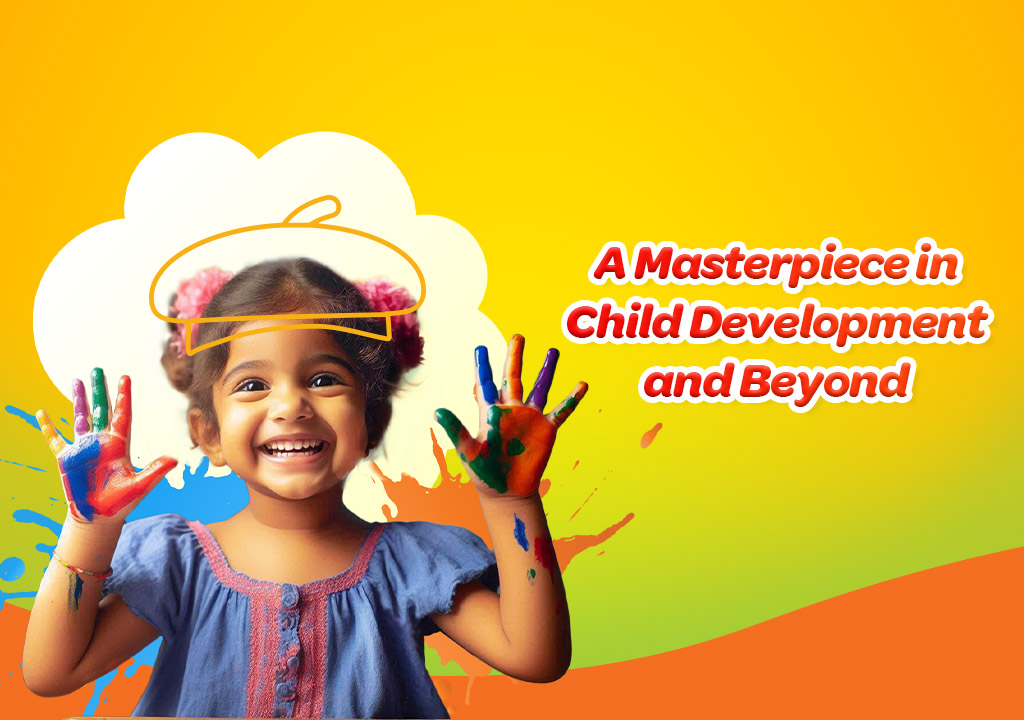Building blocks have proven themselves as a timeless and essential toy in early childhood development. From as early as 6 months old, infants begin to explore the world around them through sensory experiences, and building blocks provide a tangible and interactive way for them to do so. What makes building blocks remarkable is their simplicity combined with the wide-ranging developmental benefits they offer.
Block play indeed serves as a powerful tool for the comprehensive development of young children, offering numerous benefits that extend far beyond simple construction activities. Here’s a deeper look into how block play contributes to child well being and development.
right or wrong ways to paint, which gives a sense of freedom and confidence in their artistic abilities.
- Sensory Development: From the age of 6 months onward, infants begin to explore their surroundings through sensory experiences. Building blocks provide a tactile and interactive way for children to engage their senses, touching, grasping, and manipulating blocks of different shapes, sizes, and textures.
- Physical Development (Fine Motor Development): Handling building blocks helps children develop fine motor skills as they grasp, stack, align, and manipulate pieces. These actions strengthen hand muscles, improve hand-eye coordination, and refine dexterity, which are crucial for later tasks like writing, drawing, and using tools.
- Cognitive Development: Building with blocks stimulates cognitive skills like spatial awareness, geometry, and understanding of size, shape, weight and symmetry. Children learn concepts such as counting, sorting, comparing, balance, stability, cause-and-effect and problem-solving skills as they explore different arrangements and structures. The influence of building blocks on cognitive development is exemplified by Albert Einstein’s childhood affinity for them. Researchers speculate that his early experiences with blocks nurtured his spatial reasoning and abstract thinking abilities, which were crucial to his later scientific achievements. This underscores the profound impact that simple, open-ended toys like building blocks can have on intellectual growth.
- Language Development: Through block play, children often engage in conversations with peers or adults, describing what they are building, asking for specific blocks, explaining their ideas and engage in imaginative storytelling. They learn to express themselves clearly, use descriptive language, and engage in conversations that enhance vocabulary and communication skills.
- Social Skills: Playing with blocks in groups promotes social interaction, cooperation, and teamwork. Children learn to share materials, take turns, and collaborate on building projects, fostering empathy, respect for others’ ideas, and conflict resolution skills.
- Emotional Development: Block play supports emotional development by providing a safe space for children to explore and express feelings. It can be a calming and therapeutic activity that helps children manage stress, build self-confidence and resilience, and develop emotional regulation skills.
- Creativity and Imagination: Blocks provide an open-ended play experience where children can express their creativity, experiment with designs, and create imaginary worlds. This imaginative play nurtures innovation, problem-solving, and the ability to generate and explore new ideas.
- Executive Function Skills: Planning, organizing, and executing ideas during block play develop executive function skills such as goal setting, decision-making, and self- regulation, which are essential for academic success and lifelong learning.
- STEM Skills Development: Building blocks are an excellent tool for promoting STEM (Science, Technology, Engineering, and Mathematics) skills in children By engaging in block play, children develop foundational STEM skills in a fun and engaging way. These skills not only prepare them for future academic pursuits but also foster a deeper understanding of the world around them. Building blocks, therefore, play a crucial role in laying the groundwork for STEM education and promoting lifelong learning and curiosity in young learners.
- Strengthening Child-Parent Relationship: Through shared block play experiences, parents and children create meaningful connections and it strengthens their relationship. It provides quality time for bonding, where parents can listen to their child’s ideas, provide encouragement, and celebrate achievements together.
By incorporating block play into educational settings and home environments, caregivers and educators can enrich children’s experiences and support their overall wellbeing. This hands-on approach to learning not only prepares children for academic success but also fosters a lifelong love for exploration, discovery, and learning. Ultimately, building blocksmplay a crucial role in laying the groundwork for holistic child development and nurturing positive relationships that contribute to children’s happiness and success.

